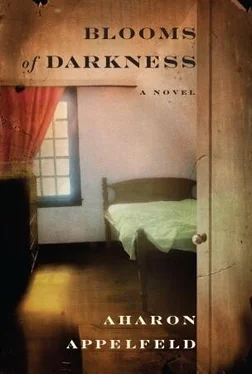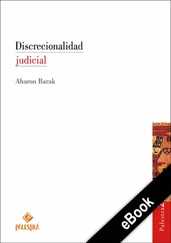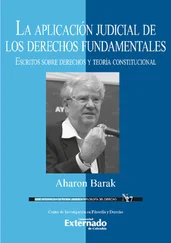Once he asked his mother, “What’s a whore?”
“It’s a word we don’t use. It’s a dirty word.”
But Sofia uses it , he was about to say.
Every time Hugo heard that word, he would envision Sofia washing her body with a stiff sponge, because anybody who used that word was dirty and had to wash his body very well.
Now, in the last darkness of the night, Hugo sees Sofia’s whole body, and she, as always, is singing and cursing, and that obscene word is rolling around in her mouth. The familiar, clear vision restores his house to him all at once, and, amazingly, everything is in its place — his father, his mother, the evening, and the violin teacher, who used to close his eyes in protest every time Hugo played out of tune.
Hugo’s progress in playing was very slow. “You have an excellent ear, and you even practice, but your desire isn’t strong, and without a strong desire, there’s no real progress. Music has to be in your fingers. Fingers that don’t have music sunk into them are blind fingers. They’ll always grope and always make a mistake or play out of tune.”
Hugo understood what was demanded of him. But he didn’t know exactly what to do. Sometimes he felt that the music really was in his fingers, and with more effort, they would do what they were ordered to. But in his heart he knew that the mountain called “correct playing” was very steep, and it was doubtful that he would be able to climb it.
Anna was better than he in this, too. She had already performed at the end of the school year, and her future in this field was not in doubt. Hugo would make efforts not to fall behind, but his achievements were mediocre, and in his report card there were no “excellents.”
Anna had only one competitor for the title of “Outstanding Pupil of the Year”—Franz. Franz was also good in every subject. He solved arithmetic problems easily, wrote fluently, and quoted poems and famous sayings by heart. He was thin, and his hair stood up, which was why they called him “hedgehog.” But don’t worry, there wasn’t a pupil in the class who came up to his ankles. His head was full of dates and the names of cities, national leaders, generals, poets, and inventors. He devoured books and encyclopedias. More than once he shamed the teacher with his knowledge. Once, full of envy, Anna said, “He’s a machine, not a human being.” Franz heard her and retorted, “Anna is knowledgeable up to a certain point.”
So the competition went. Not even the war and the ghetto halted it. Franz made sure that Anna got word of his achievements. Anna examined every one of them, and in the end she said, “In French, I have no competitor.”
From the dark corner of the closet, Hugo’s earlier life suddenly seems like petty busyness. His mother used to say, “Why compete? Why degrade yourself? What good are competition and envy? Let everyone make an accounting with himself, and that’s enough.” Back then he didn’t understand the meaning of “make an accounting with himself,” but now he pretty much understands: I have to immerse myself in listening and observing and to write down everything my eyes see and my ears hear. Many secrets surround me. I must write down every secret . In saying this, it was as if light flooded the dark closet, and Hugo knows that his mother, who pulled him out of the sewer and restored him to life, has done it again.
All night long Hugo trembles with excitement. The thought that from now on he will record precisely everything that his eyes and ears absorb, and that at the end of the war he will have five full notebooks, fires his imagination. His handwriting is usually clear, and with a certain effort he can improve it.
His mother had a notebook bound in suede in which she used to record the events of the day — about the family, about pharmacists and the pharmacy, and of course about help to those in need. Sometimes she would sit and read out loud from the notebook. It was hard for Hugo to imagine his father sitting and writing in a notebook.
Only at the chess board did Hugo’s father’s heart open, but not excessively. His mother would say, “Hans’s thoughts are orderly, the papers are in place, and every day he knows what is in stock and how much. What would I do without him? He saves me and redeems me.” Hugo’s father’s response usually took the form of “You’re exaggerating.”
Some people loved and admired Hugo’s mother. Others honored his father and would order a prescription only from him. As for help for the poor, there were no differences of opinion between them about this, or about Uncle Sigmund. His mother loved her brother because he was her admired big brother. His father loved him because he was his absolute opposite. He would stand in wonderment at the flow of Uncle Sigmund’s language and his ability to entertain people. Unlike his mother, his father never tried to persuade him to stop drinking brandy.
When Uncle Sigmund wasn’t drunk, Hugo was allowed to listen to the conversation and even to ask him a question or two. Hugo’s questions amused Sigmund. Sigmund claimed that the Jews were a strange nation, that they had hooked noses and dreadful ears, and he would immediately point at his nose and ears, make his eyes bulge, and say, “Look at Sigmund. You can say whatever you want about him, but handsome he’s not. From that point of view, he is an outstanding representative of his tribe.” Hugo’s mother didn’t agree with her brother. If it weren’t for the brandy, women would stand in line to ask for his hand. He was tall and handsome, and German poems and proverbs flowed from his mouth. He even knew Ukrainian folk songs by heart. When he wanted to shock or impress people, he would speak in Latin. Hugo’s mother was proud of him, and at the same time ashamed of him. He had been the family’s hope. Everyone used to say, “Sigmund is meant for greatness. You’ll hear of him.”
The hopes had not lasted long. Even while he was a student, his eye was on drink. At that time, brandy added charm to his charm, but as he grew older and drank more and more, his looks deteriorated. People kept their distance from him, and he plunged into his fantasies.
Uncle Sigmund was seized and deported along with Hugo’s father. Now Hugo saw him at his full height. A broad, mischievous smile filled his large face. He was telling jokes and singing, and every time he used a dirty word, Hugo’s mother would silence him.
Most of the images that Hugo brought with him to the closet have evaporated from his mind, but not the figure of Uncle Sigmund. Day by day it grows larger. His mother kept saying, “It isn’t Sigmund, but what remains of him. If he stopped drinking, he would be what he once was. His place is at the university and not in a tavern.”
Indeed, Uncle Sigmund was a favorite customer in the tavern, where he frittered away most of the allowance his family gave him. Toward the end of the month, he would ask his friends for loans. He begged at his acquaintances’ doors and caused great pain to Hugo’s mother. Every time she would hand him a banknote or two and beg him not to ask for loans from strangers.
When Uncle Sigmund came into the house, Hugo’s father would put on a special face to greet the amiable guest. Sometimes, when Sigmund was reciting a poem, he would forget a line. Hugo’s father would come to his assistance and immediately blush. His father blushed whenever he was forced to point out an error or exaggeration made by his partner in conversation. But now Hugo sees them together. Now his father doesn’t admire his brother-in-law. Rather, the brother-in-law admires his father’s silence.
During the night, clear and focused visions come to Hugo, and he doesn’t close his eyes. He waits for the morning so he can open the notebook and write down the day’s events, as he promised his mother. It seems to him that the writing will come easily.
Читать дальше












